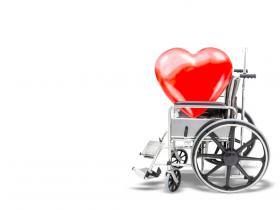People living with disabilities (PWDs) can and do have sex. Really! Few people, even researchers, have talked about sex and disability in the past. Thankfully, this is changing. But there are still lots of myths – let’s bust them!
Myth 1: People with disabilities don’t have sex
People living with disabilities (PWDs) can be just as sexual as their able-bodied peers. And PWDs have desires and sexual needs just like everyone else, even though they may express them differently.
Some people think that PWDs are less adventurous sexually than their peers. But that’s also a myth.
Myth 2: All PWDs are virgins
People with disabilities can have sex, so don’t assume someone is a virgin just because they have a disability.
This myth puts PWDs at risk of being abused, as some people believe in ‘virgin cleansing’, the belief that having sex with a virgin will cure them of STDs such as HIV.
Myth 3: PWDs don’t need love or sex
Just because someone lives with a disability doesn’t mean they aren’t worthy of love, or don’t need sex. They are worthy, and they can love and be loved.
Myth 3: PWDs can only have sex and be in relationships with other PWDs
Relationships are always hard work for both partners, whether they are living with disabilities or not. But, just because you live with a disability doesn’t mean that you are unable to contribute to a relationship. Relationships are about mutual respect and loving and caring for each other.
Myth 4: PWDs can’t have real sex
There is no such thing as ‘real sex’. There are no rules to sex. Sex is always different, and you can never have sex the same way twice. So how can there be a right or a wrong way? Have sex the way you and your partner like it, that’s all that matters!
Myth 5: PWDs can’t get STDs
Wrong. A person’s disability doesn’t affect STDs. Which means that people with disabilities are just as likely to get STDs as everybody else. So it’s important to use condoms or only have sex with a partner who has been tested for STDs.
Myth 6: PWDs don’t need sex education
Of course they do – if people are going to have sex, they should have all the information they need. On protecting themselves from STDs and pregnancy, for example. And have a basic idea on what’s happening when you have sex. Or learning how to cope with sexual violence. And contrary to what some people believe, access to sex education will not encourage people to have sex. But if they do choose to have sex, having had sexual education allows them to make informed decisions!
Myth 7: PWDs shouldn’t have children
If there are no anatomical restrictions, PWDs are just as capable of being good parents than everyone else. They may need some help on occasion, but which new parent doesn’t?
Text: Stephanie Haase
Lovematters.in


Follow Us!